How to Fix ‘Check Bluetooth Radio Status’ in Windows?
You may encounter the Bluetooth Check Radio Status issue if the Bluetooth driver of your system is corrupt or outdated. Moreover, the outdated system’s BIOS or Windows may also cause the issue at hand. The user encounters the issue when the Bluetooth of his system (mainly internal) stops working or does not turn on as the Bluetooth toggle switch does not function (in some cases, the switch was not even present) and when the user launches the Bluetooth troubleshooter, he receives the following message:
“Check Bluetooth radio status” Not Fixed
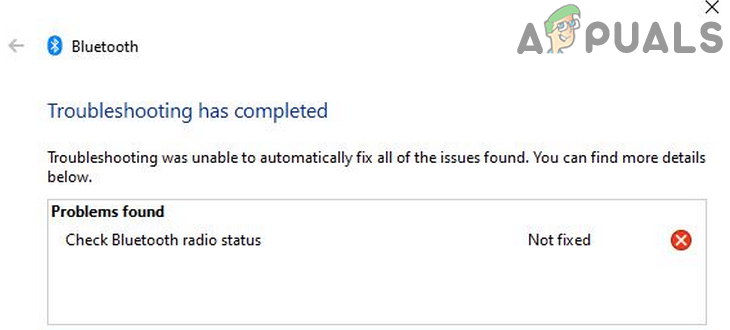
Before moving on with the solutions to fix the Bluetooth radio, check if rolling back the Bluetooth driver sorts out the problem. Moreover, make sure the airplane mode of your system is disabled (if using a Wi-Fi connection). Also, during the troubleshooting process, whenever you successfully connect a Bluetooth device to your system, then, in the Devices and Printers window, right-click on the Bluetooth device and choose Properties. Then, in the Services tab, make sure all the services are enabled.
Solution 1: Add the Bluetooth Device Through Devices and Printers
The Bluetooth device may show the issue at hand if you are trying to add the device through the Bluetooth icon in the system’s tray (and an OS glitch is stopping the execution of the process). The glitch may get cleared if the Bluetooth device is added through the Control Panel.
- In the System’s Tray, right-click on the network (or Wi-Fi) icon and choose Open Network & Internet Settings.
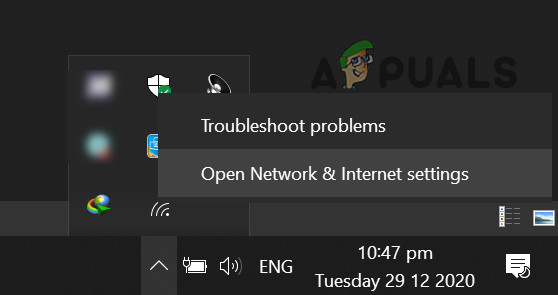
Open Network & Internet Settings - Then, under Advanced Network Settings, open Change Adapter Options.
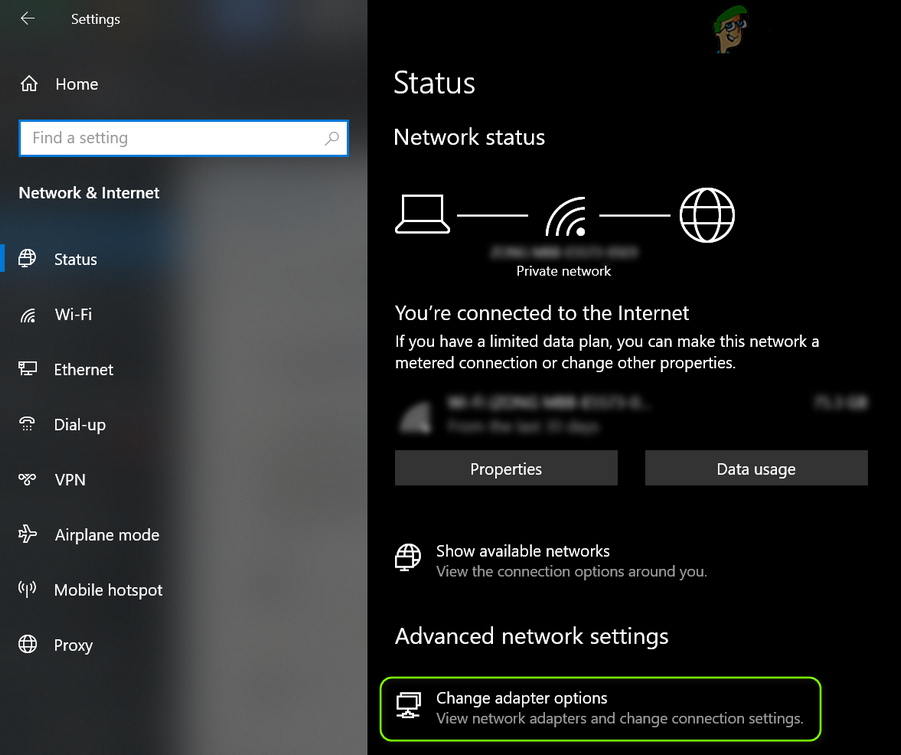
Open Change Adapter Options - Now open Bluetooth Network Connection and select View Bluetooth Network Devices.
- Then, in the Devices and Printers window, select Add a Device and check if the Bluetooth is working fine.
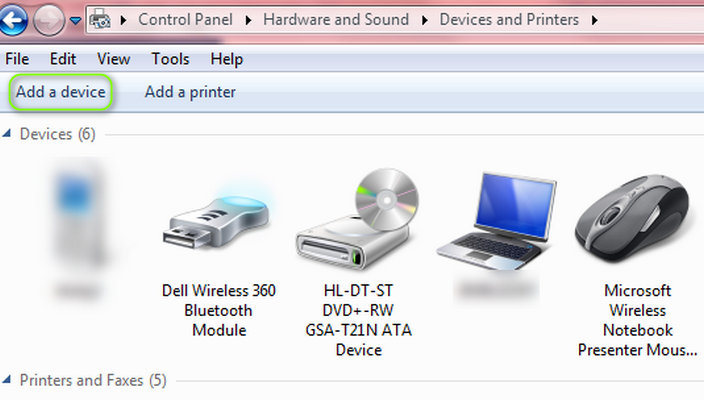
Open Add a Device Through the Devices and Printers Window
Solution 2: Update the Windows and Drivers of Your System to the Latest Releases
The Bluetooth issue may emerge as a result of an outdated version of the system’s Windows and its device drivers (as it may create the incompatibility between the essential OS modules). In this case, updating the OS and system drivers (especially, the Bluetooth driver) may solve the problem.
- Manually perform the update of your system’s Windows and make sure no optional update is pending.
- If the issue persists, then update the system’s drivers to the latest releases. You may use an update utility (like Dell Support Assistant).
- Once the drivers are updated, check if the Bluetooth issue is resolved.
- If not, then launch the Power User menu by simultaneously pressing the Windows and X keys. Then choose Device Manager.
- Now expand Bluetooth and right-click on your Bluetooth device.
- Then choose Update Driver and choose Search Automatically for Drivers.
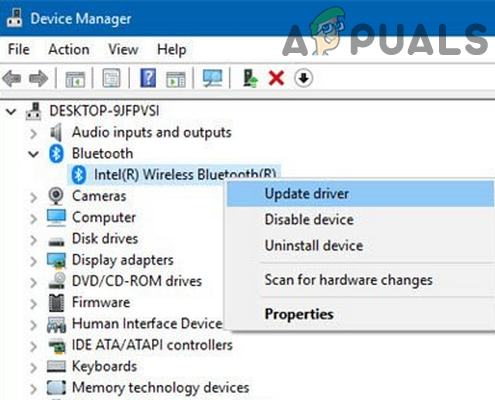
Update Bluetooth Driver - Once the driver is updated, reboot your PC and check if the Bluetooth is working fine.
- If not, then repeat steps 4 to 6 but at step 6, select Browse My Computer for Drivers.
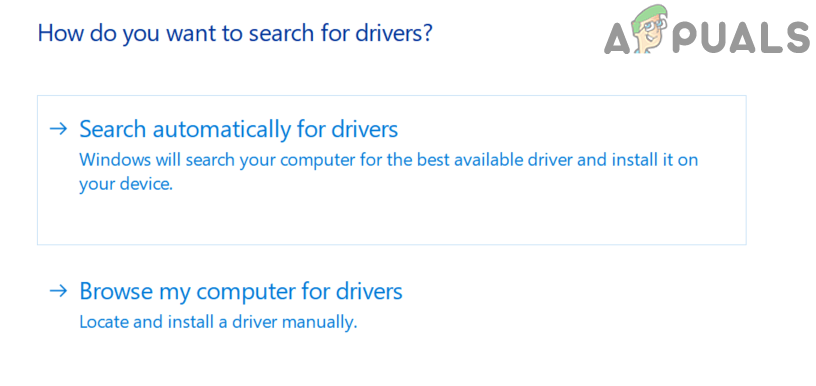
Browse My Computer for Drivers - Now select Let Me Pick from a List of Available Driver on My Computer and select one of the drivers.
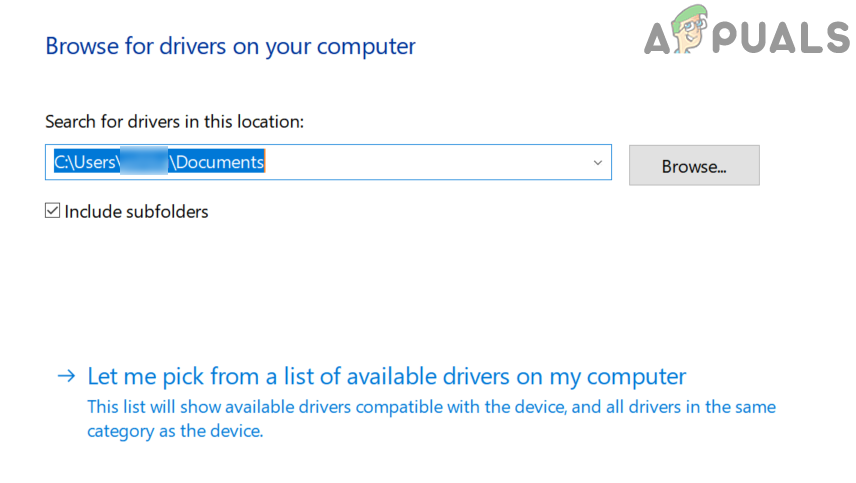
Let me pick from a list of available drivers on my computer - Now click Next and once the installation is complete, reboot your PC and check if the system is clear of the Bluetooth issue.
- If not, then you may repeat steps 8 to 10 but at step 9, try another driver. You may uncheck the option of Show Compatible Hardware to list down all the drivers.
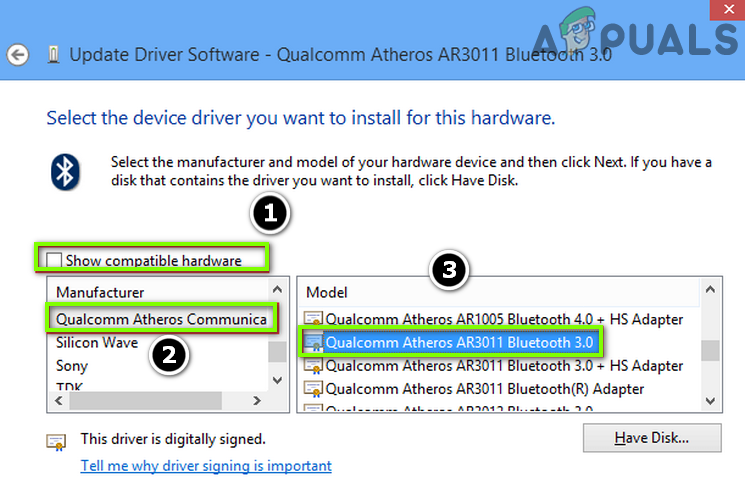
Checkmark Show Compatible Hardware - You may try each driver present there and check if one of the other drivers sorts out the Bluetooth problem.
Solution 3: Reinstall the Bluetooth Driver
You may encounter the Check Radio Status issue if the Bluetooth driver of your system is corrupt. In this context, reinstalling the Bluetooth driver may solve the problem.
- Firstly, launch a web browser and download the latest Bluetooth driver from the OEM website (for example, the Dell website).
- Now make sure to close down all the other applications and then right-click on the Windows button.
- Now, choose the Device Manager and expand Bluetooth.
- Then right-click on the Bluetooth device (e.g., Intel Wireless Bluetooth) and choose Uninstall.
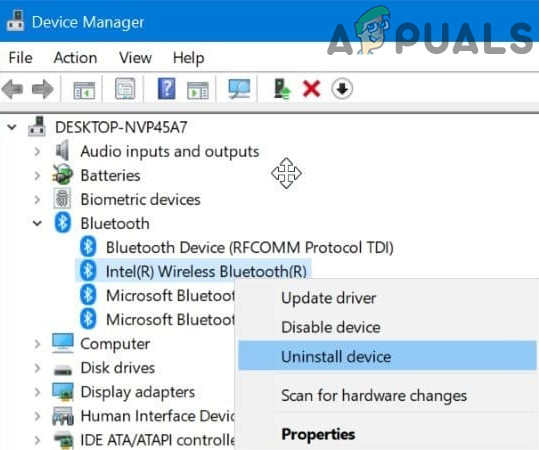
Uninstall the Bluetooth Device in the Device Manager - Now, checkmark the option of Delete the Driver Software for This Device and click on the Uninstall button.
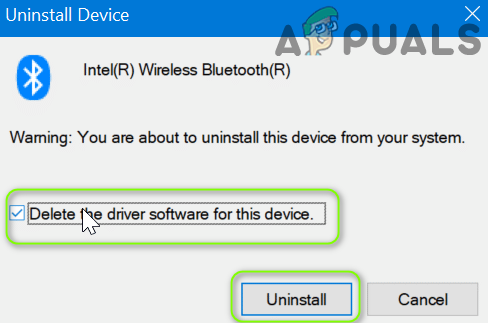
Delete the Driver Software of This Device for the Bluetooth Driver - Once the driver is uninstalled, power off your PC (not reboot) and wait for 3 seconds.
- Then power on the machine and let the Windows install the generic Bluetooth driver (if it does so).
- Now check if the Bluetooth is working fine. If not, then install the latest driver (downloaded at step 1) with the administrator privileges.
- Then reboot your PC and check if the system’s Bluetooth is operating fine.
If the issue persists, then check if uninstalling the Bluetooth and Wi-Fi drivers (some Wi-Fi chips support both Wi-Fi and Bluetooth operations like some Qualcomm adapters, which can hinder the operation of the other Bluetooth modules and cause the issue). Now reboot your system and then just install the Bluetooth driver (if the generic drive did not work) to check if that solves the issue. If so, then install the updated version of the Wi-Fi driver.
Solution 4: Delete the Phantom USB Entries in the Device Manager and Power Off/On Your System
The issue may arise if a phantom Bluetooth device entry in the Device Manager is hindering the operation of the communication modules of your system. In this scenario, deleting the phantom USB entries from the Device Manager and powering off/on your system may solve the problem.
- Open the Device Manager (as discussed above) and expand Bluetooth.
- Now expand View and in the dropdown menu, choose Show Hidden Devices.
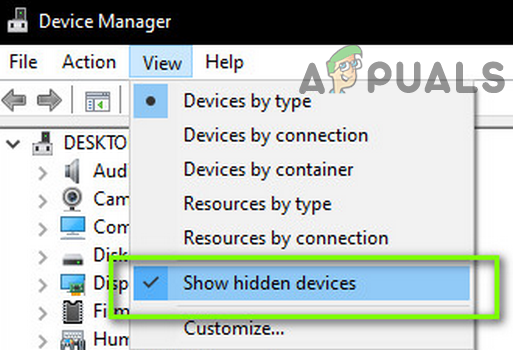
Show Hidden Devices in Device Manager - Then right-click on any of the phantom Bluetooth devices and choose Uninstall. If asked to, make sure to checkmark the option of Delete the Driver Software of This Device and click on the Uninstall button.
- Now repeat the same for any other Bluetooth device (either normal, phantom, or a device having the yellow exclamation mark over it) and close the Device Manager. Also, make sure to remove any other accessory in the Device Manager (like a headset) that uses Bluetooth.
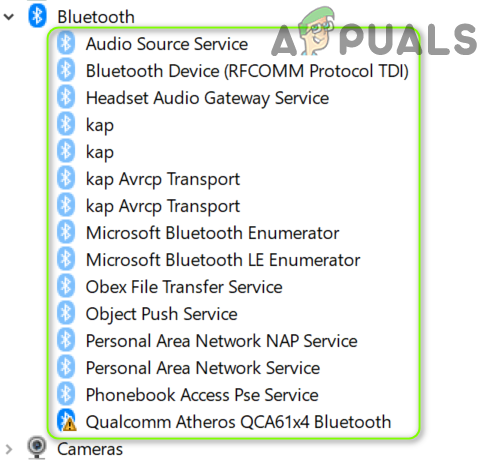
Delete the Phantom and Failed Bluetooth Entry in the Device Manager.png - Now make sure to remove all unknown devices under Universal Serial Bus Controllers. Also, remove all the Wi-Fi connections as well (make sure to have the Wi-Fi driver available).
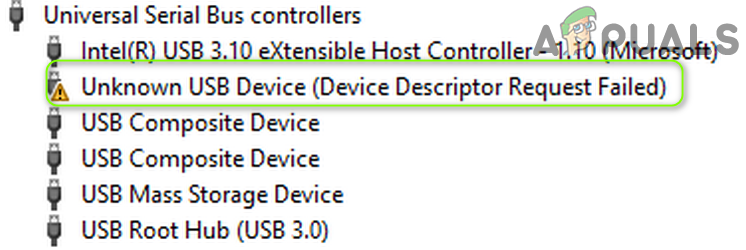
Delete Unknown Device Entry Under USB Controllers - Then power off your PC and unplug the power cable of your system.
- Now wait for 5 minutes and plug back the power cable.
- Then power on your system and check if the Bluetooth (you may have to reinstall the Bluetooth driver if Windows did not install the generic driver) of your system is working fine.
Solution 5: Disable / Enable the Bluetooth Device and its Services
The Bluetooth Check Radio Status issue may be caused by a glitch between the Bluetooth device and essential OS modules. In this context, disabling/enabling the Bluetooth device and starting its services may solve the problem. The instructions slightly differ for some users depending on the OEM.
Enable the Bluetooth Services
- Launch the Quick User menu by simultaneously pressing the Windows and X keys. Then open the Device Manager.
- Now expand Bluetooth and right-click on the Bluetooth device.
- Then select Disable and close the Device Manager.
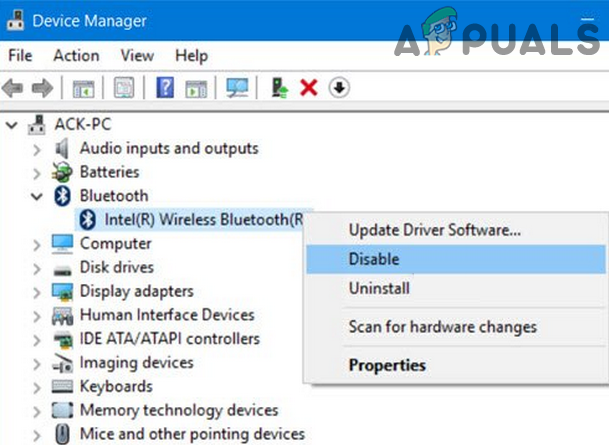
Disable the Bluetooth Device in the Device Manager - Now press the Windows key and search for: Services. Then, in the results list, right-click on Services and choose Run as Administrator.
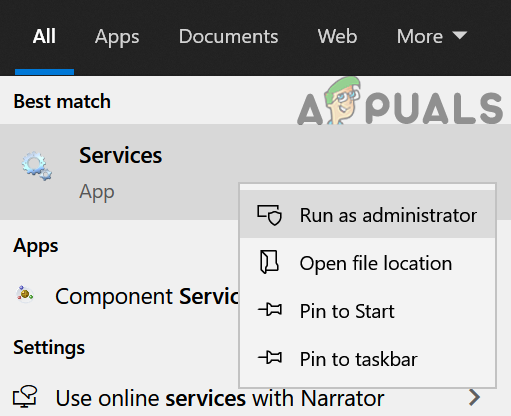
Open Services as Administrator - Then right-click on a Bluetooth service (like Bluetooth Support Service) and choose Start or Restart.
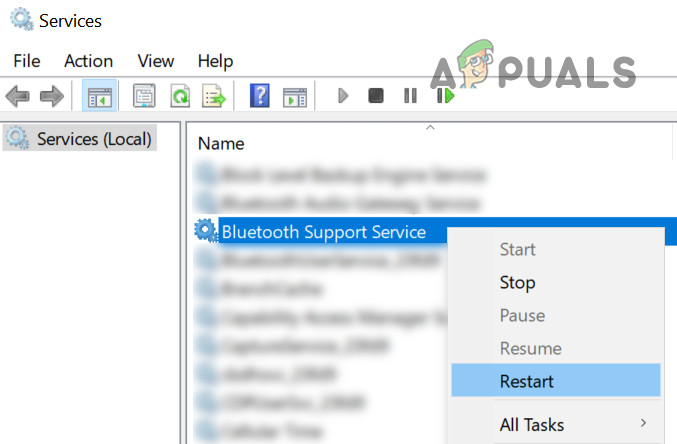
Restart the Bluetooth Support Service - Now repeat the same for all the Bluetooth services and then enable the Bluetooth device in the Device Manager (repeat steps 1 to 3 but this time Enable the Bluetooth device).
- Then check if the Bluetooth is working fine. If not, then check if rebooting the system resolves the Bluetooth issue.
Disable / Enable Bluetooth in BIOS
- Simultaneously press Windows and X keys and in the menu shown, select Apps & Features.
- Now expand any application that is related to Bluetooth (e.g., Broadcom) and uninstall it. If no Bluetooth software present, then ignore this step.
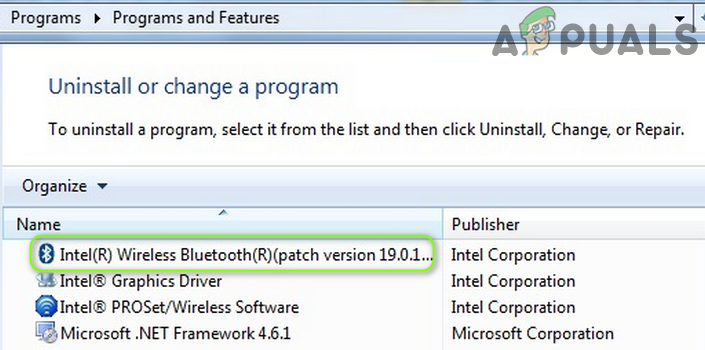
Uninstall the Bluetooth Application in the Control Panel - Now restart your PC and boot it into the BIOS.
- Then, in the left pane, expand the option of Wireless and select the Wireless Switch.
- Now, in the right pane, uncheck the option of Bluetooth and apply your changes.
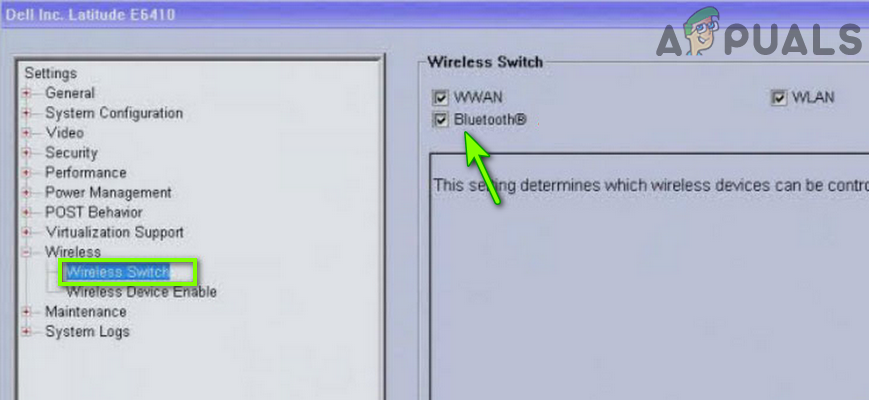
Disable Bluetooth in the System’s BIOS - Then boot your system into Windows and sign in.
- Now restart your PC and boot it into the BIOS.
- Then enable the Bluetooth in the Wireless Switch tab and apply your changes.
- Now boot your system into Windows and check if the Bluetooth is working fine.
Solution 6: Update the BIOS of Your System to the Latest Build and Reset it to Factory Defaults
The Bluetooth Check Radio Statue message may be shown by the troubleshooter if the BIOS of your is not updated to the latest build which may cause incompatibility between the OS modules. In this case, updating the BIOS of your system to the latest version released by the OEM may solve the problem.
Warning: Advance with extreme caution and at your own risk as updating the system BIOS is a proficient task and if done wrong, you may brick your system and cause everlasting damage to your data.
- Update the BIOS of your system as per the OEM as discussed below:
- After updating the BIOS, boot your system into Windows and make sure all the Bluetooth services (e.g., Bluetooth User Support Service) are started (if not, then start the service).
- Now reinstall the generic Bluetooth driver (i.e., the driver suggested by Windows) and check if the Bluetooth is working fine.
- If not, then check if installing the latest Bluetooth driver by the OEM sorts out the problem.
- If the issue persists, then check if resetting the BIOS to factory defaults resolves the Bluetooth issue.
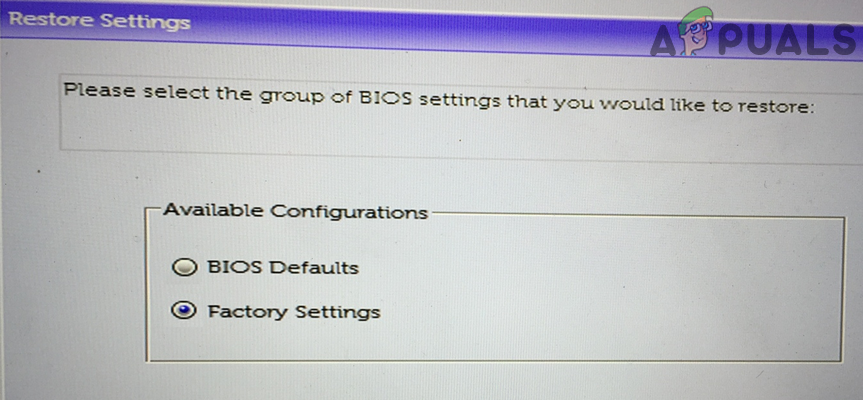
Reset BIOS to Factory Settings
If the issue persists, then check if creating a new local administrator account and using Bluetooth through that account sorts out the problem. If that did not do the trick, then you may reset your PC to the factory defaults (selecting Keep Apps and Files option).





